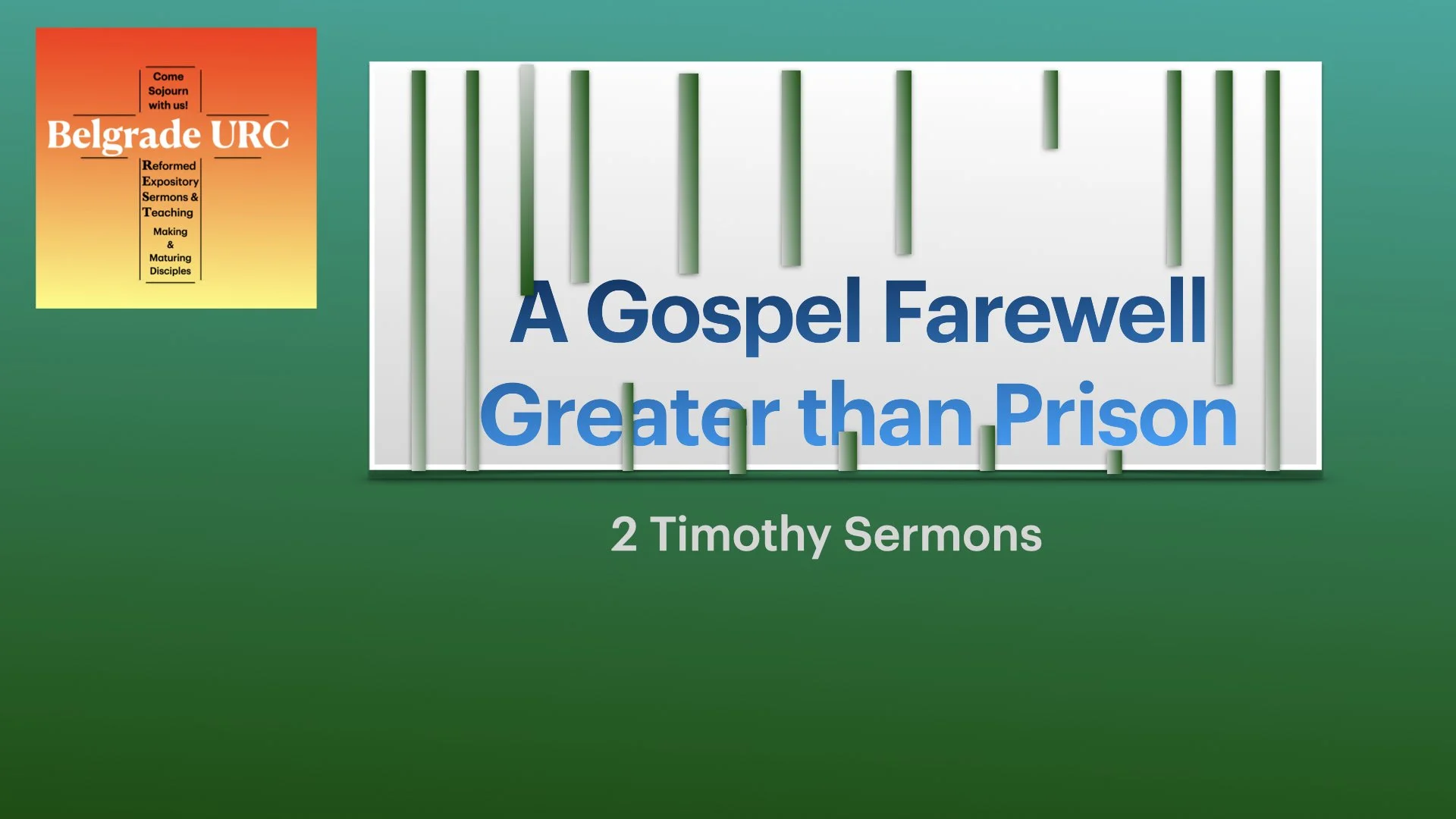God's Worthy Citizens (2 Peter 1:3-11; COD Head 3, 4, RE 9, 10)
/Christ has come to establish the Lord's kingdom and to bring his people to his heavenly city. We might wonder how one is worthy to enter into this city. Does one make themselves worthy through a series of preparations or is the Lord's grace bigger than our ability?



